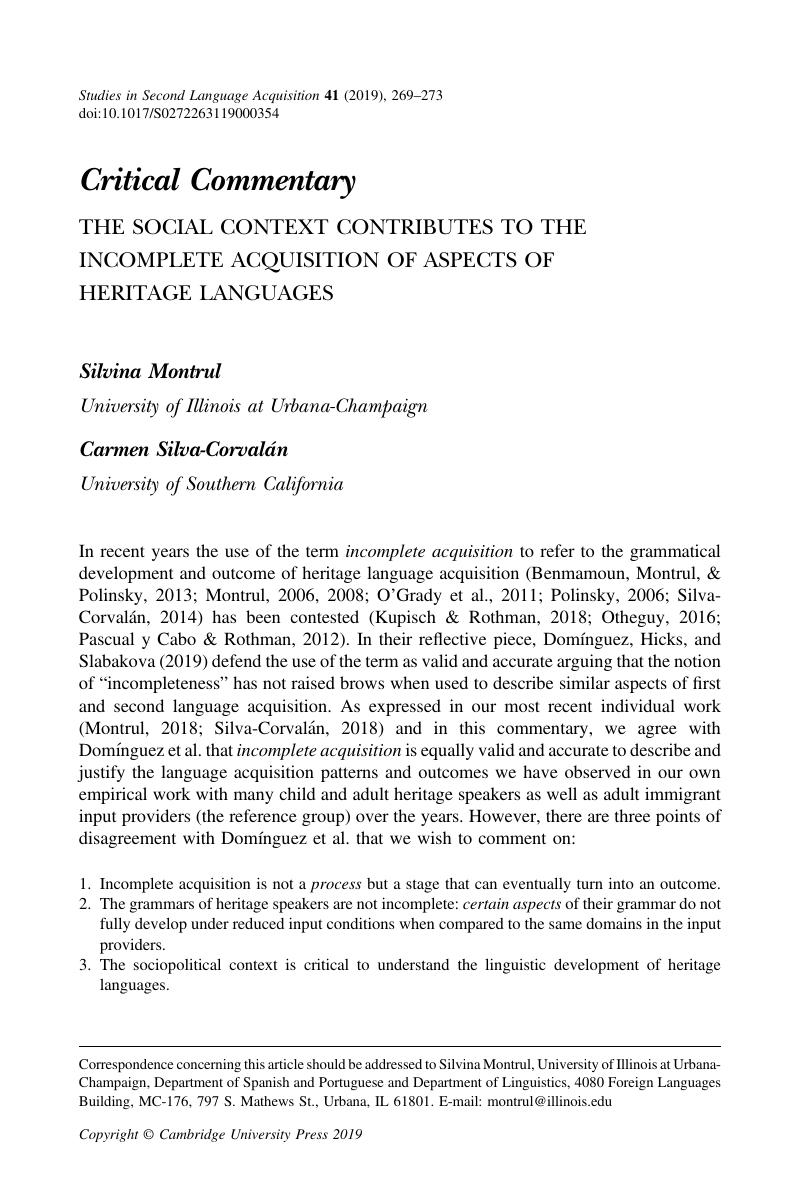Crossref Citations
This article has been cited by the following publications. This list is generated based on data provided by Crossref.
Cenoz, Jasone
and
Gorter, Durk
2020.
Teaching English through pedagogical translanguaging.
World Englishes,
Vol. 39,
Issue. 2,
p.
300.
Sánchez Walker, Noelia
and
Montrul, Silvina
2020.
Language Experience Affects Comprehension of Spanish Passive Clauses: A Study of Heritage Speakers and Second Language Learners.
Languages,
Vol. 6,
Issue. 1,
p.
2.
2021.
The Cambridge Handbook of Heritage Languages and Linguistics.
p.
11.
Li, Fei
Hong, Xiangfei
He, Zhaoying
Wu, Sixuan
and
Zhang, Chenyi
2021.
Investigating Heritage Language Processing: Meaning Composition in Chinese Classifier-Noun Phrasal Contexts.
Frontiers in Psychology,
Vol. 12,
Issue. ,
Nic Fhlannchadha, Siobhán
and
Hickey, Tina M.
2021.
Where Are the Goalposts? Generational Change in the Use of Grammatical Gender in Irish.
Languages,
Vol. 6,
Issue. 1,
p.
33.
Pavlou, Natalia
and
Grohmann, Kleanthes K.
2021.
The Cambridge Handbook of Heritage Languages and Linguistics.
p.
69.
Fernández-Dobao, Ana
and
Herschensohn, Julia
2021.
Acquisition of Spanish verbal morphology by child bilinguals: Overregularization by heritage speakers and second language learners.
Bilingualism: Language and Cognition,
Vol. 24,
Issue. 1,
p.
56.
Cenoz, Jasone
and
Gorter, Durk
2022.
Pedagogical Translanguaging.
Gutiérrez-Rivas, Carolina
Lim, Stacey R.
and
Alfano, Alliete Rodríguez
2022.
Refusal Strategies among Spanish-English Bilinguals: Comparing Adolescents with Hearing Loss to Adolescents with Typical Hearing.
Heritage Language Journal,
Vol. 19,
Issue. 1,
p.
1.
Fridman, Clara
and
Meir, Natalia
2023.
Lexical production and innovation in child and adult Russian Heritage speakers dominant in English and Hebrew.
Bilingualism: Language and Cognition,
Vol. 26,
Issue. 5,
p.
880.
Laleko, Oksana
2023.
5. The Roadmap of Heritage Language Research in North America.
Publication of the American Dialect Society,
Vol. 108,
Issue. 1,
p.
95.
Sanz-Sánchez, Israel
2024.
Lifespan Acquisition and Language Change.
Vol. 14,
Issue. ,
p.
2.





